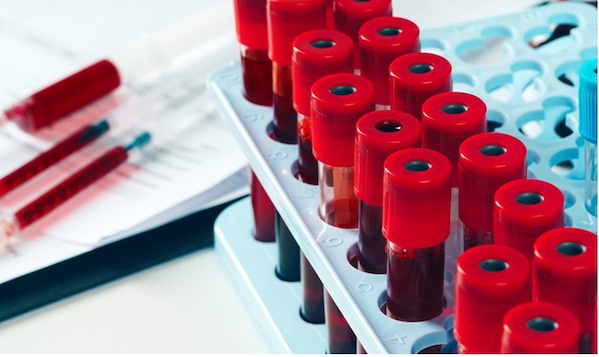Machine Learning-Powered Blood Test Estimates Age-Related Disease Risk
August 27, 2024
Source: drugdu
 236
236
 Age is a significant factor for many common chronic diseases, yet it does not perfectly represent the actual biological aging processes that drive multimorbidity and mortality. Biological aging can be more accurately assessed by using 'omics data, which reflects an individual's biological functions relative to their chronological age. Traditionally, biological aging clocks have relied on DNA methylation, but protein levels might offer deeper insights into the mechanisms of aging. Researchers have now created a machine learning-based blood test that evaluates over 200 proteins to determine a person’s biological aging rate. This test is designed to predict the risk of developing 18 major age-related diseases and the likelihood of premature death.
Age is a significant factor for many common chronic diseases, yet it does not perfectly represent the actual biological aging processes that drive multimorbidity and mortality. Biological aging can be more accurately assessed by using 'omics data, which reflects an individual's biological functions relative to their chronological age. Traditionally, biological aging clocks have relied on DNA methylation, but protein levels might offer deeper insights into the mechanisms of aging. Researchers have now created a machine learning-based blood test that evaluates over 200 proteins to determine a person’s biological aging rate. This test is designed to predict the risk of developing 18 major age-related diseases and the likelihood of premature death.
The machine learning model that uses blood proteomic information to estimate a proteomic age clock was developed by researchers at Massachusetts General Hospital (Boston, MA, USA) in a large sample of participants from the UK Biobank. Its validity was further confirmed through tests with 3,977 participants from the China Kadoorie Biobank and 1,990 from FinnGen in Finland, covering a broad age range and various health backgrounds. This test identified 204 proteins that precisely predict chronological age, including 20 key proteins linked to aging, capturing 91% of the predictive accuracy of the larger model.
The proteomic age clock demonstrated consistent accuracy across different populations from China and Finland, matching its performance in the UK Biobank. The study, published in Nature Medicine, showed that faster proteomic aging correlates with higher risks of chronic diseases such as heart, liver, and lung diseases, diabetes, Alzheimer’s, and cancer. It also relates to overall risk of multimorbidity and mortality. Moreover, proteomic aging corresponds with biological, physical, and cognitive functions, including telomere length, frailty, and cognitive performance.
This research confirms the potential of using the proteome as a reliable indicator of biological age and functioning. It enhances understanding of the biological pathways involved in aging and disease, aids in the development of treatments, and evaluates their efficacy. Although currently used only in research settings, efforts are underway to make this test available for clinical use, enabling it to be ordered in a doctor’s office.
“Multimorbidity is an important problem in clinical and population health that has a major impact on the cost of health care. Our proteomic clock gives us a first insight into the pathways that form the biological basis for multimorbidity,” said Austin Argentieri, HMS research fellow in medicine in the Analytic and Translational Genetics Unit at Massachusetts General Hospital, who is lead author of the study. “In the near future, proteomic age clocks can be used to study the relationship between genetics and environment in aging, yielding novel insights into the drivers of aging and multimorbidity across the life span. An important avenue will also be to use proteomic clocks as a biomarker for the effectiveness of preventive interventions targeting aging and multimorbidity.”
Source:
https://www.labmedica.com/molecular-diagnostics/articles/294802262/machine-learning-powered-blood-test-estimates-age-related-disease-risk.html
Read more on
- The first subject has been dosed in the Phase I clinical trial of Yuandong Bio’s EP-0210 monoclonal antibody injection. February 10, 2026
- Clinical trial of recombinant herpes zoster ZFA01 adjuvant vaccine (CHO cells) approved February 10, 2026
- Heyu Pharmaceuticals’ FGFR4 inhibitor ipagoglottinib has received Fast Track designation from the FDA for the treatment of advanced HCC patients with FGF19 overexpression who have been treated with ICIs and mTKIs. February 10, 2026
- Sanofi’s “Rilzabrutinib” has been recognized as a Breakthrough Therapy in the United States and an Orphan Drug in Japan, and has applied for marketing approval in China. February 10, 2026
- Domestically developed blockbuster ADC approved for new indication February 10, 2026
your submission has already been received.
OK
Subscribe
Please enter a valid Email address!
Submit
The most relevant industry news & insight will be sent to you every two weeks.



